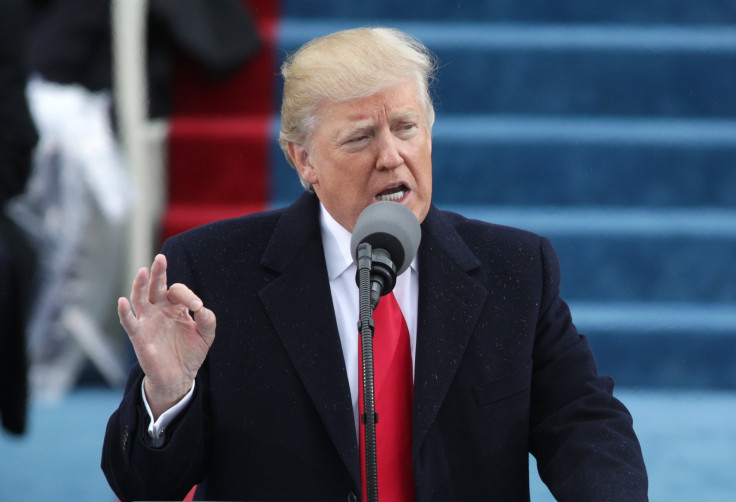Can President Trump Launch Nuclear Weapons On His Own? Officials Propose Bill Restricting Use Of Nuclear Codes For War

On the campaign trail, President Donald Trump's temperament was hotly debated, with critics contesting whether he was properly suited to be in control of the country's nuclear arsenal. But regardless of those reservations, Trump is in office now, and his ability to make use of the nuclear codes is virtually unrestricted.
Congressman Ted Lieu and Sen. Edward Markey, both Democrats, introduced a bill Tuesday that would restrict Trump's ability to start a nuclear war. The Restricting First Use of Nuclear Weapons Act of 2017 would allow the president to launch nuclear weapons only in response to a nuclear attack, not first. It would prohibit Trump from launching a nuclear strike without a declaration of war from Congress.
.@SenMarkey & I introduced legislation to stop @POTUS from launching nuclear 1st strike w/o Cong. Declaration of War https://t.co/TxAvUTxxXf
— Ted Lieu (@tedlieu) January 24, 2017
"It is a frightening reality that the U.S. now has a Commander-in-Chief who has demonstrated ignorance of the nuclear triad, stated his desire to be 'unpredictable' with nuclear weapons, and as President-elect was making sweeping statements about U.S. nuclear policy over Twitter," Lieu said in a press release.
The proposed act emphasized that checks and balances should be implemented to avoid the "potentially civilization-ending threat of nuclear war."
"Nuclear war poses the gravest risk to human survival," said Markey in the press release. "Yet, President Trump has suggested that he would consider launching nuclear attacks against terrorists."
The War Powers Act of 1973 requires a president to obtain congressional approval within 60 days of attempted military action, but the fast-paced nature of nuclear warfare makes the law obsolete. A missile launched from the Atlantic Ocean could reach Washington, D.C., in as little as 12 minutes, rendering the 60 day waiting period inept. Instead, Trump can initiate nuclear warfare all on his own. He would need only to give the order and military officials would be obligated to carry it out lest they be court-martialed.
The president voiced his objections to outright nuclear warfare while campaigning, but noted that he wouldn't rule it out.
"I will be the last to use nuclear weapons. I will be the last to use it. I will not be trigger happy like some people might think," he said in April. "I will be the last, but I will never, ever rule it out."
SaveSave
SaveSave
© Copyright IBTimes 2025. All rights reserved.






















